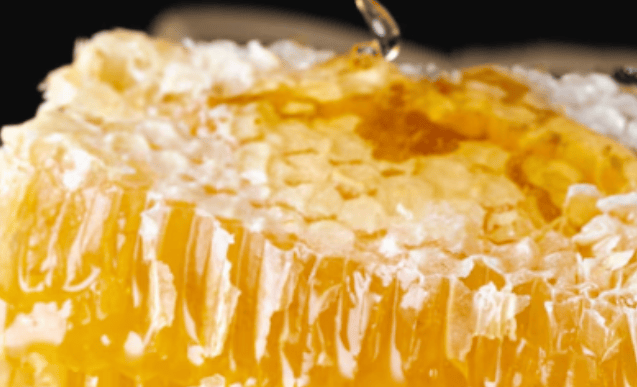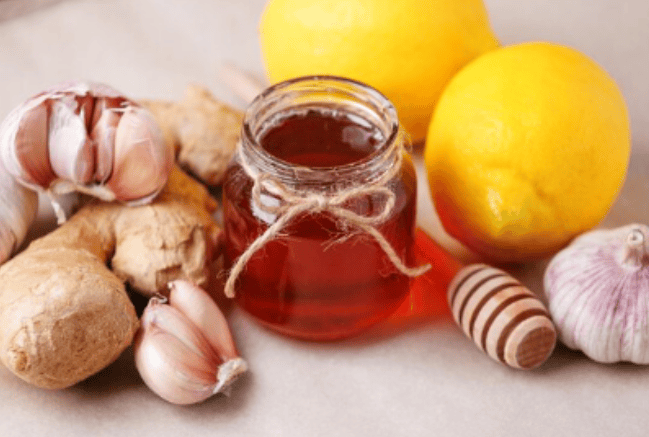Your immune system is your body’s natural defense against infections—and what you eat plays a big role in keeping it strong. While many people reach for medications when they feel under the weather, food can be one of your most powerful allies.
Certain whole foods contain natural antibacterial compounds that help fight harmful microbes and reduce inflammation. These nutrients don’t just support immunity—they may also help prevent infections and speed up recovery.
From garlic and honey to turmeric and ginger, antibacterial foods have been used for centuries in traditional medicine. Today, modern research continues to explore how these immune-boosting foods work on a cellular level to protect your health.
In this article, we’ll explore some of the best natural foods that support immune strength while actively defending the body against bacteria. These easy additions to your diet can help you feel better, recover faster, and stay resilient—naturally.
Why Antibacterial Foods Matter for Immunity
Your immune system is constantly working to protect you from harmful bacteria, viruses, and other pathogens. While hygiene and lifestyle habits matter, the food you eat plays a vital role in keeping your defenses strong. That’s where natural antibacterial foods come in.
Certain foods contain powerful compounds that help neutralize harmful bacteria. These natural substances—like allicin in garlic or curcumin in turmeric—don’t just kill bacteria directly; they also support your immune system’s ability to respond quickly and effectively.
Most antibacterial foods are also rich in antioxidants, vitamins, and phytochemicals, which fight inflammation and oxidative stress. These properties are essential for preventing infections, speeding up recovery, and keeping immune cells functioning at their best.
Unlike synthetic antibiotics, which can disrupt gut health and lead to resistance over time, antibacterial foods offer a gentle, supportive way to fight infection. They work in harmony with your body, not against it.
Adding more of these foods to your diet is a safe and natural way to strengthen immunity, reduce inflammation, and support your body’s first line of defense—without side effects.
Top 10 Antibacterial Foods for Immune Health
If you’re looking to give your immune system a natural boost, you’re not alone. More people are turning to food as medicine, especially those rich in antibacterial properties. From ancient remedies to modern research, the right ingredients in your kitchen can help defend against harmful bacteria, reduce inflammation, and support overall health. Here’s a deep dive into 10 of the best antibacterial foods, each backed by science and packed with immune-supporting benefits.
1. Garlic
Garlic is one of the most powerful natural antibiotics. It contains allicin, a sulfur-rich compound activated when garlic is crushed or chopped. Allicin helps fight bacteria, viruses, fungi, and even some drug-resistant strains. According to a 2020 study in the Journal of Antimicrobial Chemotherapy, garlic extract showed strong activity against Staphylococcus aureus and E. coli.
Immune Benefits: Garlic enhances white blood cell response and reduces the length and severity of colds.
How to Use: Crush fresh garlic and let it sit for 10 minutes to activate allicin. Add it raw to dressings, dips, or mix into warm—not hot—soups.
2. Ginger
Ginger contains bioactive compounds like gingerol and shogaol, known for their antimicrobial and anti-inflammatory effects. Research shows ginger can inhibit bacterial growth, especially in the respiratory tract.
Immune Benefits: Eases congestion, reduces sore throat, and improves circulation to support immune response.
How to Use: Grate fresh ginger into tea, smoothies, or stir-fries. Try ginger shots during flu season.
3. Raw Honey (Especially Manuka)

Raw honey, especially Manuka honey, has potent antibacterial and wound-healing powers. Manuka honey contains methylglyoxal (MGO) and hydrogen peroxide, which destroy bacteria and promote tissue repair. Clinical research supports honey’s use against Staphylococcus aureus and H. pylori.
Immune Benefits: Soothes sore throats, suppresses coughs, and supports gut and skin health.
How to Use: Stir into tea after it cools slightly, use in DIY face masks, or apply to wounds. Choose Manuka honey with UMF 10+ or higher.
4. Turmeric
The bright yellow root turmeric owes its healing powers to curcumin, a polyphenol with strong antibacterial, antiviral, and antifungal effects. Curcumin has been shown to block bacterial signaling and reduce chronic inflammation.
Immune Benefits: Modulates immune cells, supports detoxification, and reduces inflammation linked to infections.
How to Use: Mix turmeric into curries, golden milk, or smoothies. Combine with black pepper to enhance curcumin absorption.
5. Onions
Onions are rich in quercetin, a powerful antioxidant and natural antibiotic. They also contain sulfur compounds that inhibit bacterial growth. Onions have shown effectiveness against bacteria like Salmonella and E. coli in lab studies.
Immune Benefits: Reduces inflammation, boosts respiratory health, and supports healthy digestion.
How to Use: Enjoy raw red onions in salads or lightly cooked in soups and stir-fries.
6. Oregano (Especially Oil of Oregano)
Oregano and its essential oil are loaded with carvacrol and thymol, compounds with proven antibacterial, antiviral, and antifungal properties. Studies confirm oregano oil kills strains of Listeria, Salmonella, and Staph.
Immune Benefits: Supports respiratory health, clears infections, and may help prevent antibiotic resistance.
How to Use: Use dried oregano in Italian dishes, or take oil of oregano in capsules or diluted drops. Use short-term and under guidance.
7. Cinnamon
Cinnamaldehyde, the active compound in cinnamon, has strong antibacterial effects. Research shows cinnamon can combat E. coli, Listeria, and fungal strains like Candida.
Immune Benefits: Regulates blood sugar, reduces inflammation, and supports a balanced immune response.
How to Use: Add to oatmeal, teas, smoothies, and baked goods. Ceylon cinnamon is milder and safer for regular use.
8. Green Tea
Green tea is packed with catechins, especially epigallocatechin gallate (EGCG), which has antibacterial, antiviral, and antioxidant properties. EGCG disrupts bacterial membranes and may prevent biofilm formation.
Immune Benefits: Supports gut flora, reduces oxidative stress, and boosts T-cell function.
How to Use: Drink freshly brewed green tea daily. Matcha is a more concentrated option.
9. Yogurt & Kefir
Fermented dairy products like yogurt and kefir are rich in probiotics—live bacteria that help balance gut microbiota. A healthy gut microbiome is key to a strong immune system. Some probiotic strains produce natural antimicrobials.
Immune Benefits: Supports gut barrier function and boosts immune signaling.
How to Use: Choose unsweetened yogurt or kefir with “live active cultures.” Add to smoothies or eat with fresh fruit.
10. Coconut Oil
Coconut oil contains lauric acid, which converts to monolaurin in the body—a compound shown to disrupt bacterial and viral membranes. It’s especially effective against gram-positive bacteria.
Immune Benefits: Reduces yeast overgrowth, supports skin and digestive health.
How to Use: Cook with virgin coconut oil, or add a spoonful to coffee or smoothies. Use topically for skin protection.
How to Incorporate These Foods Daily
Making immune-boosting, antibacterial foods a part of your daily meals is easier than you might think. With just a few simple tweaks, your kitchen can become a source of daily defense and nourishment.
Start with the basics—add garlic and onions to your favorite dishes. Whether it’s stir-fries, soups, or pasta sauces, they add both flavor and immune-supporting benefits. Coconut oil is another easy upgrade—use it as a cooking oil, mix it into smoothies, or stir it into oatmeal.
Try brewing a daily ginger-turmeric tea. Add slices of fresh ginger and a pinch of turmeric to hot water, squeeze in lemon juice, and finish with a teaspoon of raw honey. It’s a powerful, soothing drink for the immune system.
For quick seasoning boosts, sprinkle oregano, cinnamon, or ground cloves onto roasted vegetables, breakfast oats, or smoothies. These herbal immune boosters offer great flavor and functional benefits in every bite.
Incorporating these natural ways to boost immunity doesn’t require drastic changes. Just choose one or two to start, and build from there. Small, consistent choices often lead to lasting health improvements—especially when they’re delicious, too.
What to Watch Out For
While antibacterial foods can naturally support your immune system, it’s important to use them wisely. Even healthy ingredients can cause issues if overused or combined with certain medications.
For example, garlic and ginger may thin the blood, which can interact with blood-thinning medications. Turmeric supplements may affect how your body processes certain drugs. Always speak with your healthcare provider before adding large amounts of any new food or herbal product—especially if you’re on prescription medication.
Stick to whole, food-based sources instead of high-dose supplements. A sprinkle of cinnamon or a clove of garlic is safe for most people, but concentrated extracts can sometimes cause side effects.
Also, aim for organic and raw forms when possible. This reduces exposure to pesticides and preserves the beneficial compounds. And remember—more isn’t always better. It’s about balance and consistency, not megadoses.
These natural immune support precautions help ensure you get the benefits of antibacterial foods without unnecessary risks. A thoughtful, informed approach always leads to the best results.
FAQs About Antibacterial Foods and Immunity
Can antibacterial foods replace antibiotics?
No, they can’t. While antibacterial foods support your immune system and may help prevent infections, they don’t replace prescribed antibiotics. For serious or persistent infections, always follow your doctor’s advice.
How often should I eat these foods?
You can enjoy most immune-boosting foods daily in moderate amounts. Garlic, onions, and ginger are safe to use regularly in meals. For spices like turmeric and cinnamon, a small daily dose (¼–½ tsp) is typically fine. The key is consistency—not overload.
Are these safe for kids or elderly people?
Generally, yes—when used in normal food amounts. However, some strong herbs or essential oils (like oregano oil) may be too intense for young children or seniors. Stick to food-based forms and check with a healthcare provider if there are medical conditions involved.
What’s the difference between antibacterial and antiviral foods?
Antibacterial foods help fight harmful bacteria, while antiviral foods help the body combat viruses. Some foods (like garlic and ginger) offer both effects. Think of them as natural allies that support your overall defense system.
Conclusion
Nature offers powerful tools to help your body stay strong. Antibacterial foods like garlic, ginger, turmeric, and honey provide a simple, natural way to support your immune system and help fight infection. They work by reducing harmful bacteria, calming inflammation, and boosting your body’s defenses from within.
The best part? You don’t need a complete diet overhaul to get started. Just add a little garlic to your meals, sip ginger tea, or sprinkle cinnamon on your breakfast. Small, consistent changes make a real difference.
By including these immune-boosting foods in your routine, you not only nourish your body—you build resilience for the long term. Your kitchen truly can be your first line of defense.
